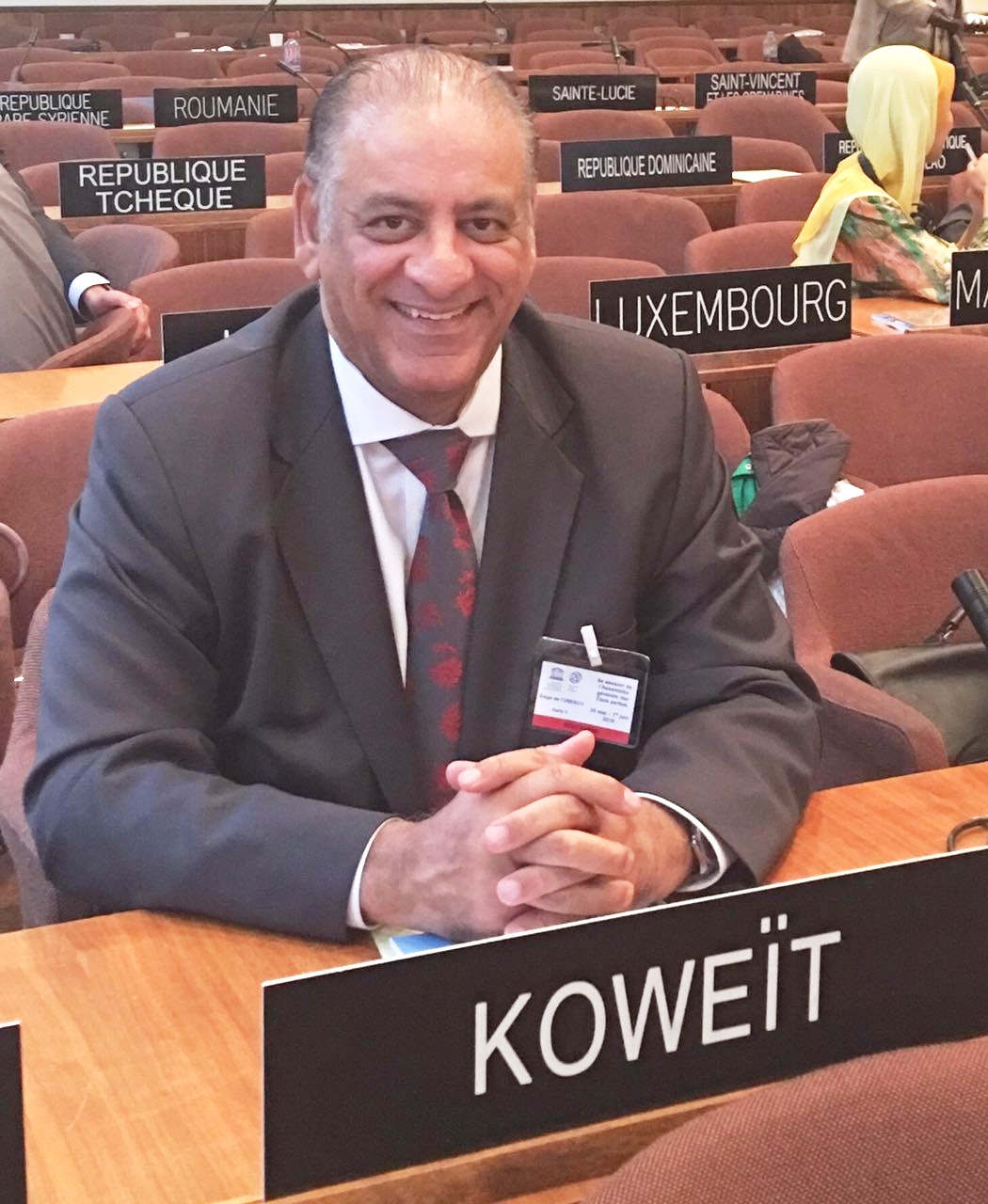LOC02:15
23:15 GMT
 Dr. Waleed Al-Seif
Dr. Waleed Al-Seif
By Mashaal Bashir
PARIS, May 30 (KUNA) -- Members of the General Assembly of the States Parties to the Convention for the Safeguarding of the Intangible Cultural Heritage have elected Dr. Waleed Al-Seif as a deputy chairman of the general assembly.
Speaking to KUNA, Kuwait's delegate to UNSCO Ambassador Meshaal Hayat said that Al-Seif was unanimously elected by GA members in their meeting held Monday.
He noted that Al-Seif, an advisor at the technical bureau of the Secretary General of Kuwait's National Council for Culture, Arts and Letters (NCCAL), was nominated as a representative of the Arab member states.
"This is an appreciation from the member states to Kuwait's effective cultural role and its great contributions to the UNESCO," Ambassador Hayat stated.
He pointed out that Kuwait has joined the convention in 2015.
For his part, Al-Seif expressed his pleasure for the election to this important cultural post.
"This a significant achievement for Kuwait and an evidence on its remarkable efforts to safeguard world intangible cultural heritage," he told KUNA.
The General Assembly of the States Parties to the Convention is the sovereign body of the Convention and meets in ordinary session every two years.
The General Assembly gives strategic orientations for the implementation of the Convention and elects the 24 members of the Intergovernmental Committee for the Safeguarding of the Intangible Cultural Heritage.
All States Parties to the Convention meet every two years in an ordinary session at the UNESCO Headquarters.
The Convention for the Safeguarding of Intangible Cultural Heritage was passed by the UNESCO General Conference held in 2003.
Along with other international instruments that protect cultural heritage - such as the Convention concerning the Protection of World Cultural and Natural Heritage - the 2003 Convention is aimed at safeguarding the uses, representations, expressions, knowledge and techniques that communities, groups and, in some cases, individuals, recognise as an integral part of their cultural heritage.
This intangible heritage is found in forms such as oral traditions, performing arts, social practices, rituals, festive events, knowledge and practices concerning nature and the universe, and traditional craftsmanship knowledge and techniques. (end)
mb.ibi